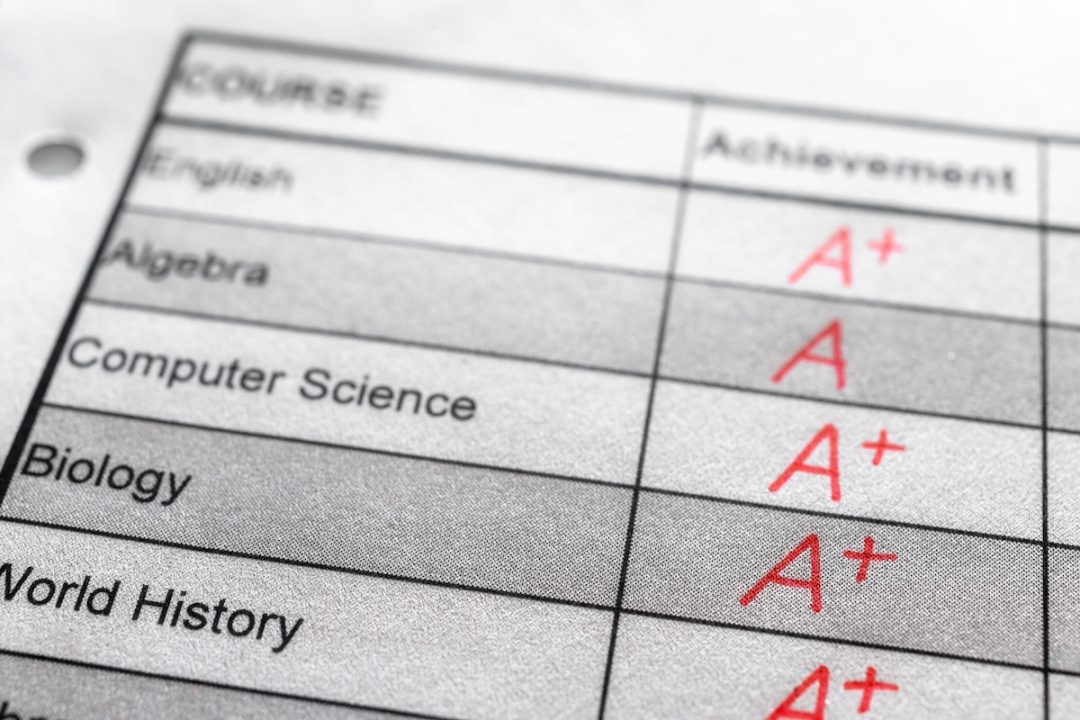
The San Francisco Unified School District (SFUSD) did an about-face Wednesday on a proposed “equity” grading program after news of the proposal generated significant backlash from both parents and prominent Democrats.
SFUSD Superintendent Maria Su presented her proposal, which would have piloted equity grading in high schools, to the school board Tuesday evening. After that, according to Newsweek, the board was scheduled to vote on a $172,000 contract with Joe Feldman, author of the book Grading for Equity, to train teachers in his grading methods.
Faking the Grade
Before Su could make her proposal, a concerned school-board member leaked the meeting agenda to The Voice of San Francisco, which published a scathing article about the plan. John Trasviña, an attorney who served in the Clinton, Obama, and Biden administrations, wrote:
Grading for Equity eliminates homework or weekly tests from being counted in a student’s final semester grade. All that matters is how the student scores on a final examination, which can be taken multiple times. Students can be late turning in an assignment or showing up to class or not showing up at all without it affecting their academic grade. Currently, a student needs a 90 for an A and at least 61 for a D. Under the San Leandro Unified School District’s grading for equity system touted by the San Francisco Unified School District and its consultant, a student with a score as low as 80 can attain an A and as low as 21 can pass with a D.
Furthermore:
For teachers, one of the school district’s interim goals is to set a target for students to get a C grade or higher in the new system. That should be easier under Grading for Equity because the system lowers the threshold for a C grade. But will the student learn more or be more ready for college and career?
San Leandro’s experience suggests not. As its name implies, equity grading is intended to equalize outcomes by boosting grades of politically favored groups while reducing those of politically disfavored ones. (Feldman once bragged that, under his system, more affluent students “had a sharper decrease in A’s” than other students.) After nearly a decade of equity grading, however, San Leandro’s students have “significant continued disparities” on statewide assessment tests, penned Trasviña. “The children needing the most help and improvement,” he contended, “are not getting it.”
Dems’ Fightin’ Words
Trasviña also charged that Su intended to impose grading for equity on SFUSD whether the board liked it or not. Regardless of the veracity of that allegation, the fact that the proposal had apparently blindsided the board and was based on unproven, politically charged methods was enough to produce major public opposition to it.
On Wednesday afternoon, San Francisco Mayor Daniel Lurie, a Democrat, posted on X:
We owe our young people an education that prepares them to succeed. The proposed changes to grading at SFUSD would not accomplish that.
I have conveyed our view to SFUSD. We are optimistic that there is a better path forward for our kids and their future.
Congressman Ro Khanna (D-Calif.) wrote on Facebook:
My immigrant dad asked me where the missing 10% went when I scored a 90. He came to America for the chance to work hard & pursue excellence. Giving A’s for 80% & no homework is not equity — it betrays the American Dream and every parent who wants more for their kids.
Parents also voiced their concerns over the plan. One parent of two SFUSD high schoolers told the San Francisco Chronicle, “What possible message can they take from this plan other than to conclude that working hard and applying oneself is for suckers? Not a great way to prepare them for the challenges of adulthood.”
Grading for Equity Flunks Out
By late Wednesday afternoon, Su had figured out that grading for equity had flunked the test of public opinion. She issued a statement saying, “It’s clear there are a lot of questions, concerns, and misinformation with this proposal…. I have decided not to pursue this strategy for next year to ensure we have time to meaningfully engage the community.”
Su’s reference to “misinformation,” along with the Chronicle’s echoing her sentiments (“rumors and misinformation”), is a pretty good indication that Trasviña had, in fact, reported the truth.
Feldman has repeatedly denied that his program imposes no penalties for late or incomplete work, removes homework and other assignments from a student’s final grade, allows students to retake exams until they pass, and contributes to grade inflation.
However, as a 2024 Education Week article by authors who claim to “value educational equity” pointed out, those are core principles of Feldman’s grading methods. Penalizing students for being tardy or turning in late work “violates our bias-resistant Driving Principle,” Feldman writes. He does indeed say that homework and other practice assignments should not be graded. As to exams, “you might want to give retakes until students have demonstrated necessary understanding,” even after the semester ends, he suggests. And he argues that no student should get a grade lower than 50 percent regardless of his performance.
On top of all that, noted the authors:
The research base on which Feldman’s work rests is thin. … Even Feldman’s company’s own analysis offers exactly zero evidence that students learned more after the implementation of his program.
For now, SFUSD students have dodged a bullet. But grading for equity will almost certainly reappear in the future. After all, under that system, people get to keep trying until they succeed.





